Case study part five
Reflections 02
Download this video: "MPEG-4" format (recommended) | Alternative Format "Theora"
This final section highlights the importance of reviewing individual plans. This is important for the person, to make sure that support and services are still relevant to their outcomes, and to the service, to ensure that they are getting it right and improving outcomes with people. Services should also be using outcomes information to continuously improve.
The video clip shows how Ken’s review highlighted something very important to him which staff had not thought of, as well as showing how his quality of life has improved. Ken’s written review is also included in this section.
Watch the single scene above and enter your reflections in answer to the three questions that follow below (you'll be able to print your reflections for future reference).
You have JavaScript turned off!
The activity below will not work for you unless you turn JavaScript back on.
Question 1 of 3
Was the iPad an outcome for Ken?
Answer
No! A good definition of an outcome is that it is what matters to the person. The outcome is Ken’s wish to keep in touch with his family. The iPad represents a resource which his family has provided to make that communication happen – it is a means rather than an end. You may find it helpful to look at the examples in ‘Recording outcomes’.
Question 2 of 3
What were the benefits of Ken’s review for him?
Answer
Ken’s concerns about privacy have been addressed. An imaginative new solution (the iPad) will mean he feels closer to his family, so expanding his opportunities. Having spoken up about his concerns, he is now confident that he will be listened to if he voices any worries. This will contribute to trust in staff.
You may like to look at Ken’s review to see how the actions have been recorded. The review also enables staff to check what is working (Ken’s mobility and health) and to find out what isn’t working (staff reading Ken’s emails).
Question 3 of 3
What is it about the way Jeannette has worked with Ken that helps to account for how well he is getting on?
Answer
Jeannette has listened to Ken and has acted on his priorities. She has been honest with him about what is possible. She has planned his support to focus on the outcomes they have identified together. She has included his family in the process and enabled them to contribute to Ken’s wellbeing. She has ensured that other people (eg the physiotherapist and other staff) are working together to help achieve the things that matter to Ken. You may find it helpful to review the differences between service-led and outcomes-focussed approaches.
